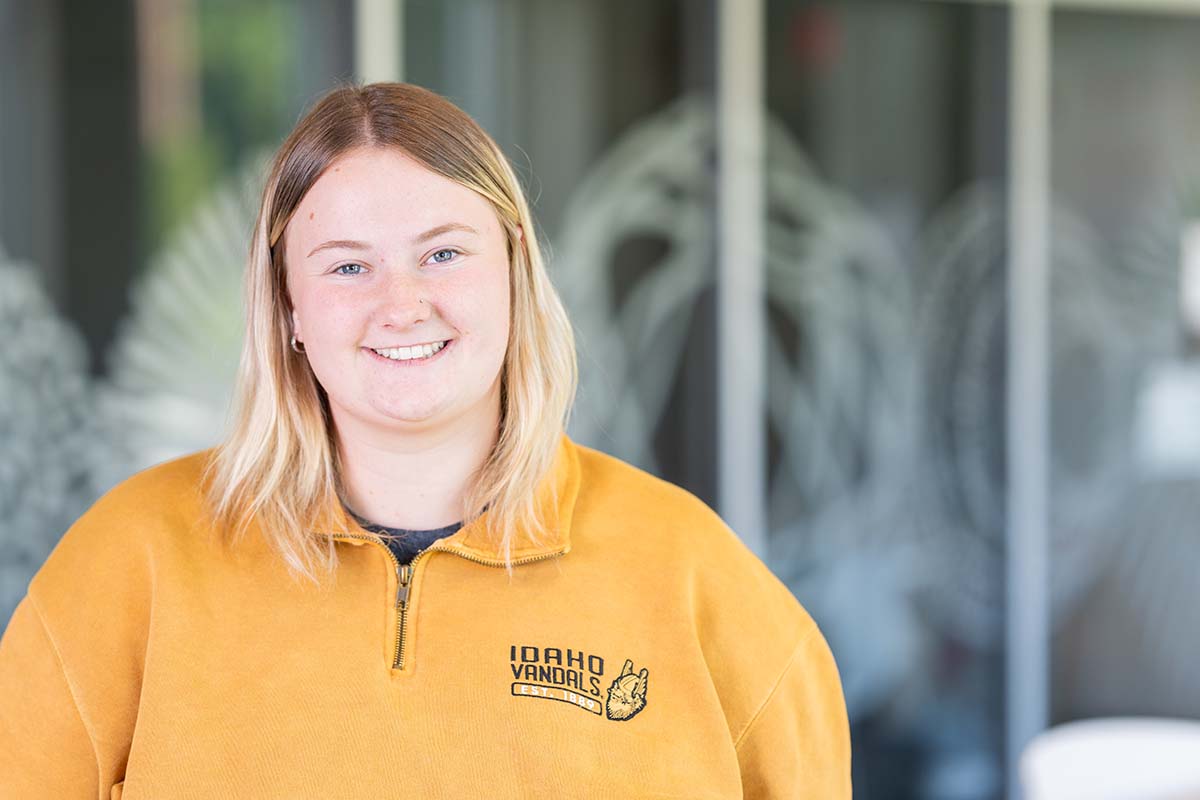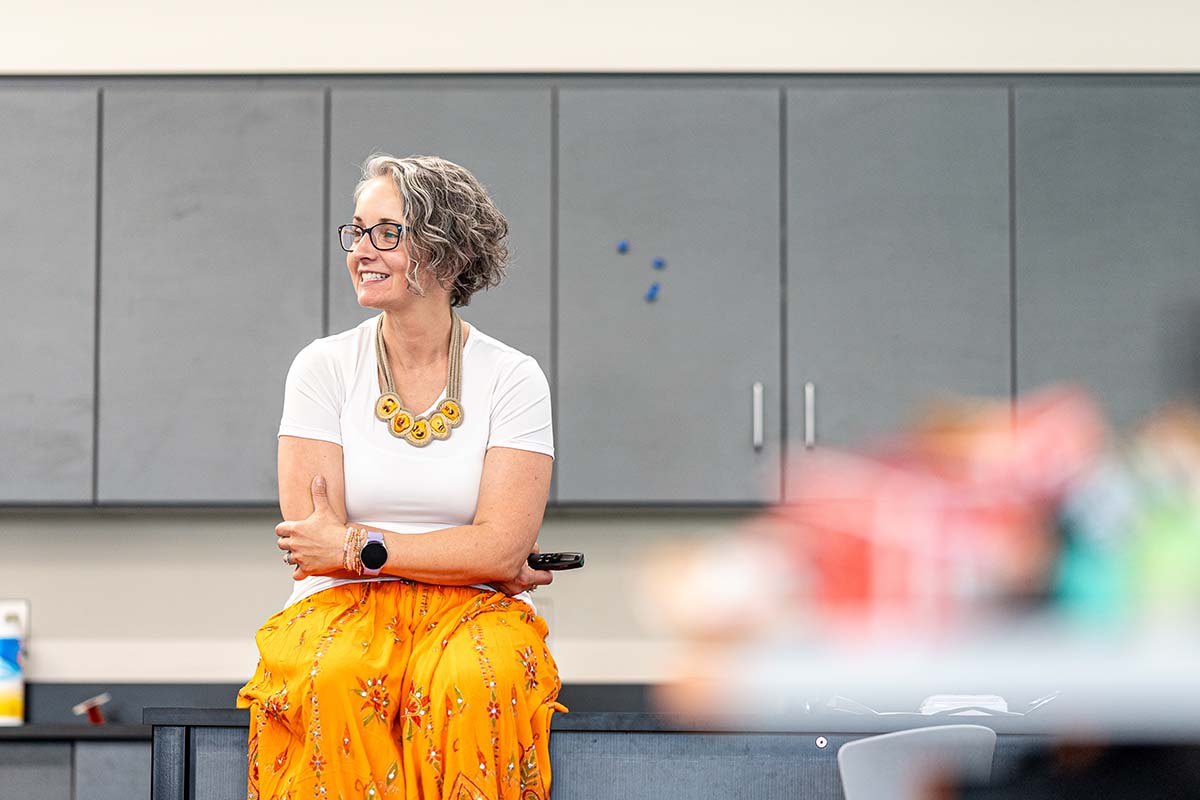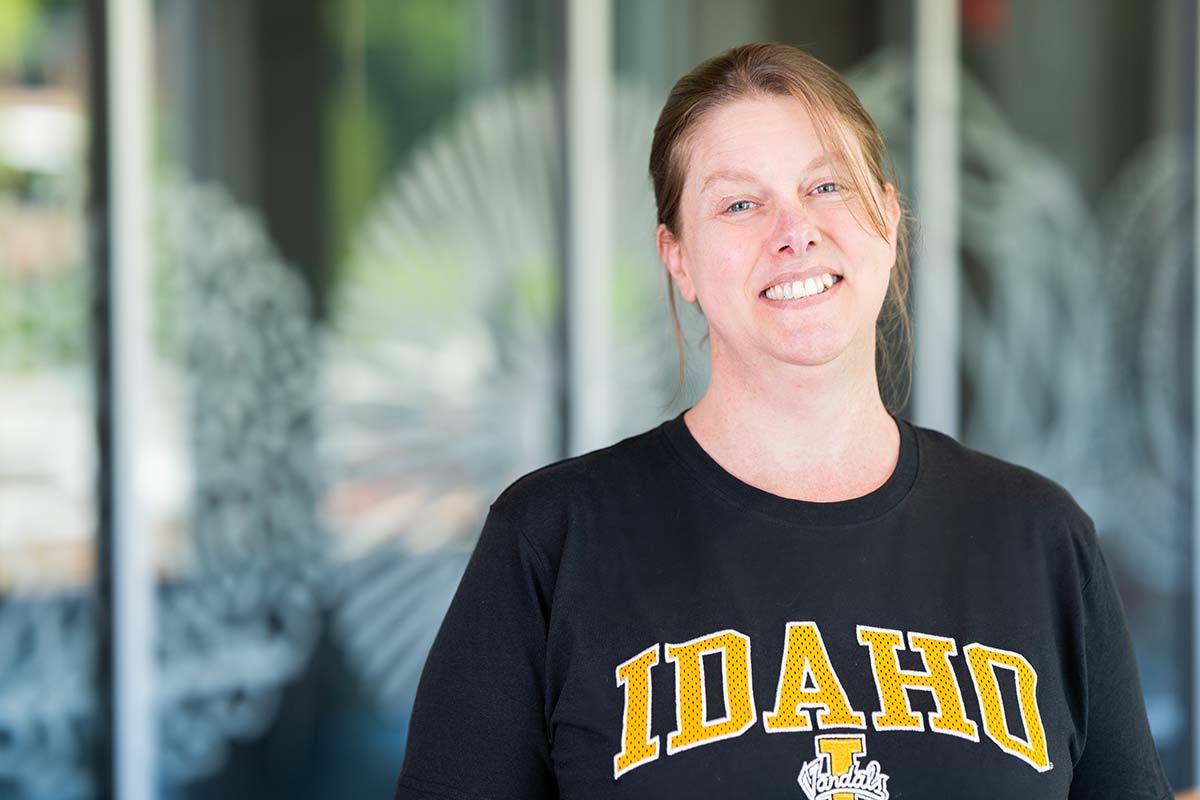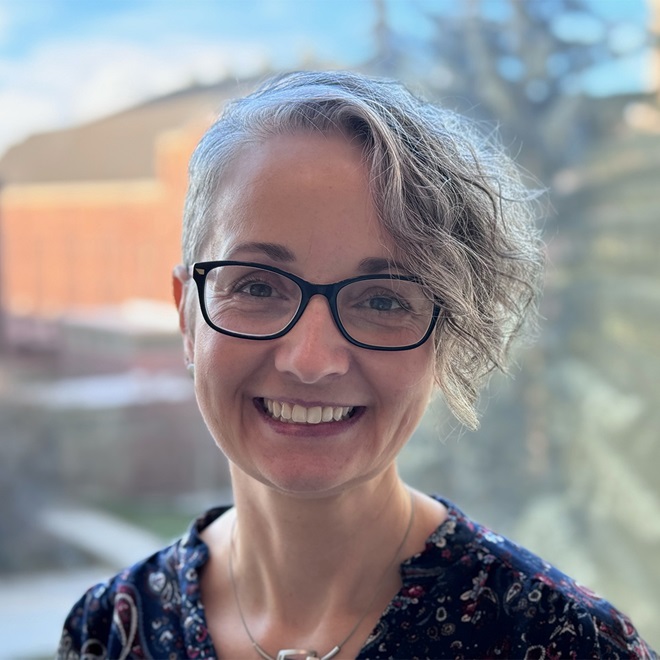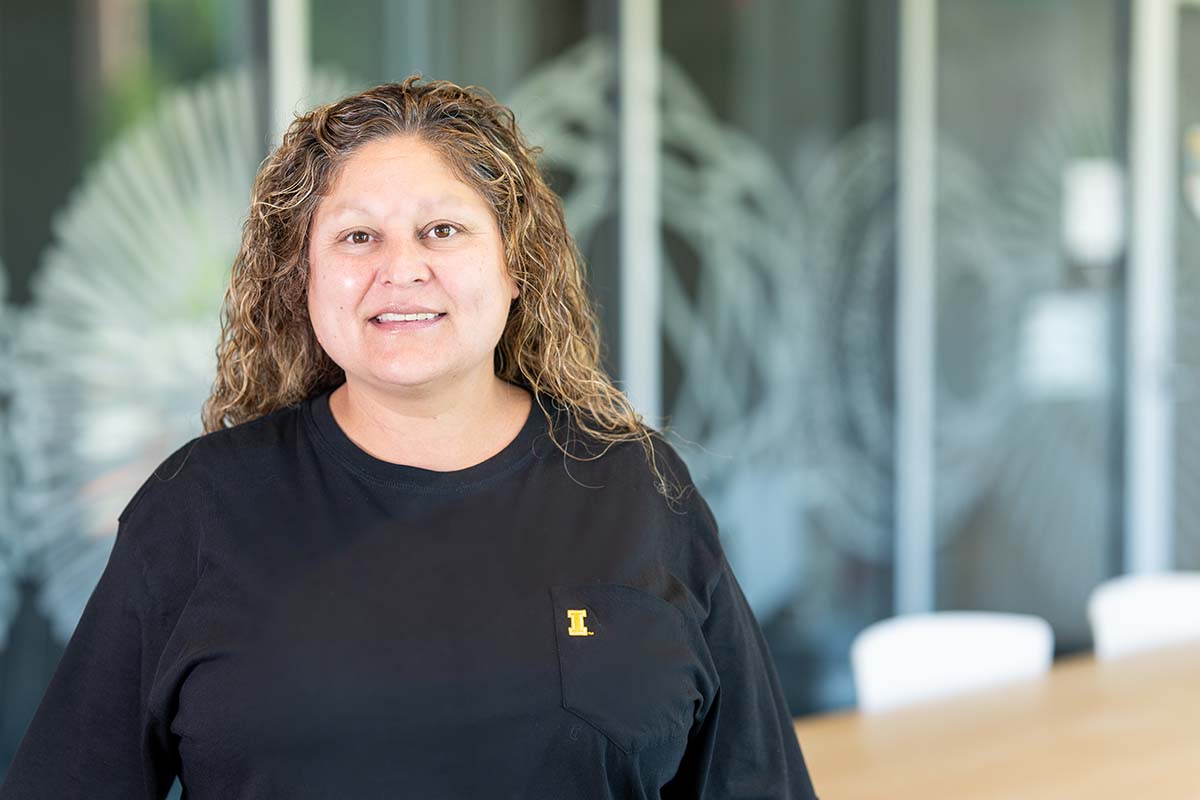Impacting Idaho
New certification addresses special education teacher shortage
Kaylee Baldwin didn’t listen to those who told her she couldn’t possibly become a teacher. And even though she’s only two years away from doing just that, her focus is not on proving the doubters wrong — it remains on the students.
“I want to be what my teachers were to me,” said the 21-year-old from Burley. “My heart is with my students.”
Baldwin is one of 11 students taking part in Idaho’s Model Paraeducators Advancing to Certification (IMPACT), a program created by the College of Education, Health and Human Sciences (EHHS) to address the special education teacher shortage in Idaho and across the country.
“There’s a huge teacher shortage nationwide and special education teachers are one of the most in-demand roles,” said Andrew Scheef, EHHS’s special education program coordinator. “The idea is to start with paraeducators who are already in special education classrooms. They’ve been in the trenches. They know what it takes.”
The two-year online program is free to participants through a grant from the U.S. Department of Education. Upon completion, graduates are eligible to obtain a certificate to teach special education in Idaho.
Someone special
As a paraeducator — someone who works under the direction of a teacher, usually for personalized support roles — in the Burley School District, Baldwin is proving she belongs in a classroom.
I work with one girl who’s on the autism spectrum and I spend a lot of time with her one-on-one. Because she will only work with me, I’m building a relationship with her and watching her flourish like she never has before. That’s why we do this.Kaylee Baldwin, IMPACT student
Told she wouldn’t amount to much because she came from a broken home and was not at the top of her class in school, she ignored what she heard and followed her heart.
“I jumped into this position, and it was kind of sink or swim,” she said. “But I’m growing into it. I’ve gotten emails from people telling me I’ve already made a difference in my first year. That’s really helped me stay with it.”
The IMPACT program will meet virtually for two summers. At the initial session this summer, Baldwin enjoyed sharing stories with her classmates about connecting with special education students. Although last year was her first year in the classroom, she already understands that connection is the key to success.
“I work with one girl who’s on the autism spectrum and I spend a lot of time with her one-on-one,” Baldwin said. “Because she will only work with me, I’m building a relationship with her and watching her flourish like she never has before. That’s why we do this.”

Andrew Scheef, Ph.D.
Associate Professor, Special Education Program Coordinator

Smooth transition
In the workforce since 1997, Jennifer Karlberg recently restarted her higher education journey, obtaining an associate of science in child development from North Idaho College last year.
As a developmental preschool paraeducator at the Lake Pend Oreille School District in Kootenai County, Karlberg learned about IMPACT from the school district’s director of special education and was encouraged to apply by her lead teacher, Sara Smith ’04.
Karlberg wants to become a full-time special education teacher not only to fill an important role in public education, but also to provide a better future for her two children as a single mom.
Karlberg appreciated the teamwork and bonding she developed with classmates in Moscow this summer. That was Scheef’s hope for the cohort.
“We began by meeting in person for the first week because we wanted our scholars to have a built-in support system as they started,” he said. “Most of the group work they’ll be doing will be online but because of the time they spent together, that strong connection will be there.”
Home improvement
Gia Paul, who has spent the last 27 years as a paraeducator in Idaho, is also excited about becoming a special education teacher. She says there is a need for change in the current system and thinks programs like IMPACT will help bring about those changes.
Paul, who works as a reading intervention specialist with the Idaho Digital Learning Alliance, has experience in both brick-and-mortar schools and digital learning platforms and appreciated hearing stories from the other IMPACT scholars about best practices.
She has also worked in Genesee and Lapwai and is a member of the McDonald Elementary PTO in Moscow. Paul wants to absorb as much information as she can about success stories in special education so she can share them with her network of those involved in special education.
She also appreciates the idea of completing her online program while working, saying it’s a perfect match.
“I think when you have a hands-on experience with your employer and then you have support and learning opportunities in the educational system, it’s a wonderful way to learn.”

Aleksandra Hollingshead, Ed.D.
Curriculum and Instruction Department Chair, Special Education

Article by David Jackson, University Communications
Photos by Garrett Britton, University of Idaho Visual Productions
Published in August 2024







